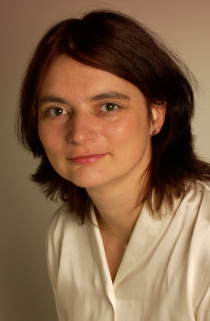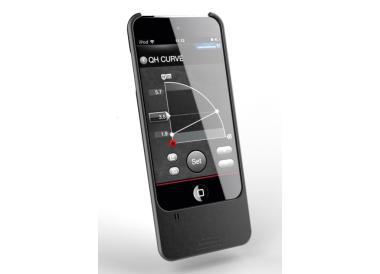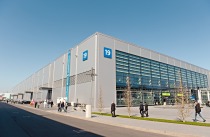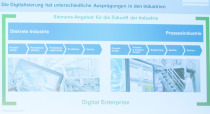Dr Melzer heads steering committee Industry 4.0 platform
28.01.2019
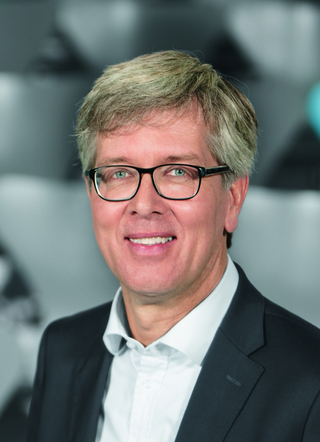 Dr Frank Melzer
Dr Frank Melzer
Source: Festo
Festo Member of the Management Board Dr Frank Melzer takes over as head of the Industry 4.0 platform steering committee for the digitisation of business in Germany. He replaces Bernd Leukert, a member of the SAP Management Board. The handover took place on 4 December 2018 at the Digital Summit in Nuremberg.
“I look forward to taking over the chair and would like to thank Mr Leukert for his successful work over the past two years. He was a committed leader of the steering committee and made a major contribution to the success of the platform by promoting and implementing innovative test centres for companies,” said Dr Frank Melzer. “During my tenure, I would like to focus on technology development. In particular, the further development of decentralised, autonomous systems and artificial intelligence, which provide us with excellent tools for optimising industrial production processes in the future. Another focus will be the qualification and further training of skilled workers. Because digitisation is driving the change of competence in our society faster than any industrial change before it.”
Dr Frank Melzer has been a Member of the Management Board of Festo AG & Co. KG since 1 October 2017. The mechanical engineering graduate heads the Product and Technology Management department, which includes Digital Business and Corporate Research and Innovation.
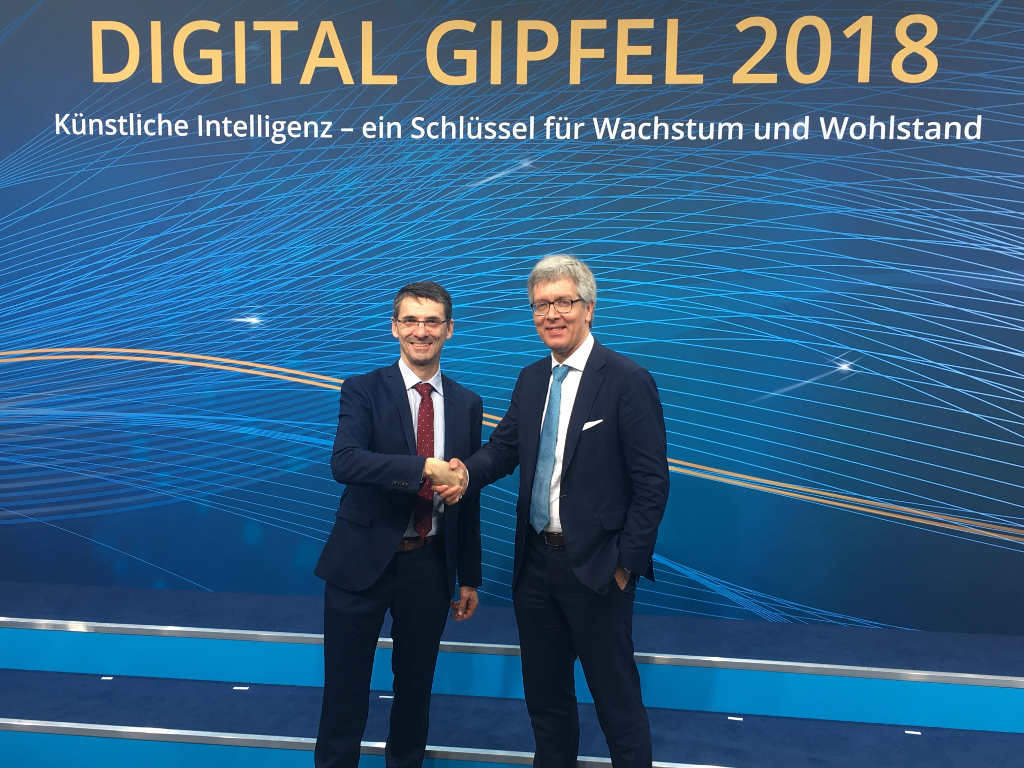 Dr Frank Melzer (right) replaces SAP Member of the Management Board Bernd Leukert as head of the Industry 4.0 platform steering committee.
Dr Frank Melzer (right) replaces SAP Member of the Management Board Bernd Leukert as head of the Industry 4.0 platform steering committee.
Source: Janina Henning / Industry 4.0 platform
Festo is involved in the Industry 4.0 platform
Festo has been involved in the research advisory board and several working groups since the founding of the Industry 4.0 platform. The experts are particularly involved in the topics of reference architectures, standards, security of networked systems and qualification.
Administration shell for Industry 4.0
Among others, Dr Michael Hoffmeister, Executive Expert in Digital Business at Festo, was significantly involved in the concept of the administration shell in the working group ‘Reference architectures, standards and standardisation’ of the Industry 4.0 platform. The paper ‘Details of the Administration Shell’ was published at the SPS IPC Drives exhibition in Nuremberg at the end of November. The management shell is so important for Industry 4.0 because it abstracts the devices and other assets and allows their data and other functionalities to be accessed in a unified and controlled manner. An asset can be a single sensor or a complete production line. The management shell describes the asset using sub-models that complement each other. Each sub-model represents a specific aspect, such as documentation or technical data.
The Industry 4.0 platform
The Industry 4.0 platform is the central network in Germany for advancing digital transformation in production. More than 300 actors from over 150 organisations are actively involved in the platform, working shoulder to shoulder between politics, business, science, trade unions and associations. As one of the largest international and national networks, the platform supports German companies – in particular medium-sized businesses – to implement Industry 4.0, especially by making existing practical examples of Industry 4.0 known to companies and spreading them across the country. It also provides important impulses with concrete recommendations for action and refers to support services and test environments. The numerous international cooperations of the platform underline its strong role in the international discussions around the topic of Industry 4.0.
Digital Summit
Once a year, the Digital Summit of the German Federal Ministry for Economic Affairs and Energy (BMWi) is dedicated to ideas, tasks and concepts to strengthen Germany as a location for digital transformation. This year’s summit on 3 and 4 December in Nuremberg was held under the motto ‘Artificial intelligence – a key to growth and prosperity’. Representatives from politics, business, science and education discussed the challenges and opportunities of digitisation. Until 2017, the Digital Summit was still called the National IT Summit. The new title takes account of the fact that digitisation concerns both the supplier and the user side, from industry 4.0 to the cultural and creative industries.
www.festo.com

